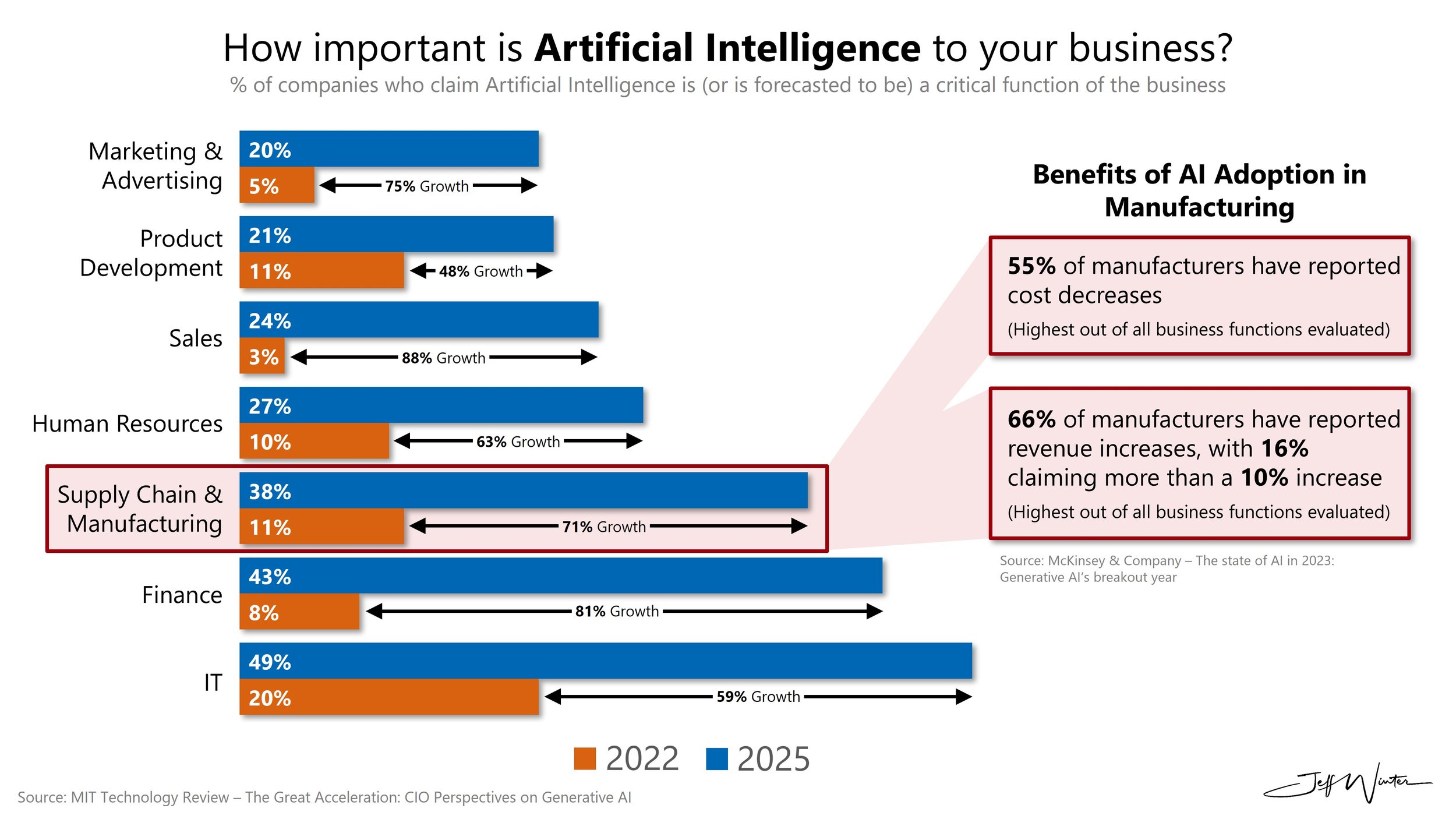Criticality of Artificial Intelligence
The Acceleration of AI Adoption Driven by ChatGPT and Generative AI
In the period spanning late 2022 to early 2023, the rise of consumer-facing generative AI tools, particularly ChatGPT, marked a significant shift in how both the public and enterprises perceived AI's potential. The journey that began with GPT-2 in 2019 has now culminated in a profound transformation in how businesses approach AI. While earlier AI iterations hinted at potential, it was only with the introduction of tools like ChatGPT that the full promise of generative AI became palpable, compelling businesses to rethink their strategies.
A Trillion-Dollar Revolution
According to the McKinsey Global Institute, this AI evolution is expected to contribute a staggering $2.6 to $4.4 trillion annually to the global economy. The rapid adoption of generative AI tools could potentially accelerate the automation of work, bringing forward the automation of half of all work by up to a decade. This monumental shift is not just a technological evolution but a complete transformation in the workforce dynamics, with significant implications for job sectors globally.
The Role of Generative AI in Business Transformation
Text-generating systems, epitomized by ChatGPT, have democratized AI, allowing it to permeate every facet of business operations. These Large Language Models (LLMs) are designed to predict rather than merely search for information, providing businesses with unprecedented capabilities in data analysis, content creation, customer interaction, and more. This democratization of AI has pushed it from being an isolated tool for specific tasks to becoming the central nervous system of modern enterprises.
However, this generative wave brings with it new challenges for leadership. Organizations must now navigate the complex terrain of data management, workforce transformation, and AI governance. The rapid deployment of AI across various business functions requires a balanced approach, leveraging AI's opportunities while mitigating risks associated with its widespread adoption.
Generative AI's Impact on Manufacturing
While generative AI is poised to disrupt many industries, its impact on manufacturing, particularly in sectors like aerospace and automotive, may be less pronounced due to AI's strengths in language tasks rather than physical labor. However, the broader AI landscape in manufacturing tells a different story.
According to McKinsey, 60% of AI-adopting organizations are integrating generative AI in areas such as marketing and product development. Interestingly, high-performing AI organizations focus more on generating new revenue rather than merely cutting costs. Despite the rise of generative AI, the overall adoption of AI in manufacturing remains consistent, with the sector witnessing the highest level of financial benefits in 2022.
Manufacturing, which ranks 8th in generative AI adoption across business functions, has demonstrated remarkable financial gains from AI adoption. Specifically, 55% of manufacturers reported cost decreases—the highest among all business functions. Moreover, 66% of manufacturers have reported revenue increases, with 16% claiming a revenue boost of more than 10%.
Embracing the AI Wave in Manufacturing
The insights from McKinsey highlight the dual benefits of AI adoption in manufacturing—cost reduction and revenue generation. As the industry continues to evolve, the integration of AI, particularly generative AI, will play a crucial role in driving innovation and efficiency. Manufacturing companies must not only adopt AI but also strategically align it with their long-term goals to fully capitalize on its potential.
As we look to the future, the acceleration of AI adoption, catalyzed by tools like ChatGPT, underscores the need for manufacturers to embrace this technological wave. The companies that succeed will be those that can navigate the complexities of AI integration, from workforce transformation to governance, while leveraging AI's full potential to drive business growth.
In this new era, AI is not just a tool; it is the foundation upon which the future of manufacturing will be built.
References:
MIT Technology review - The great acceleration: CIO perspectives on generative AI, 2023: https://www.technologyreview.com/2023/07/18/1076423/the-great-acceleration-cio-perspectives-on-generative-ai/
McKinsey & Company - The state of AI in 2023: Generative AI’s breakout year: https://www.mckinsey.com/capabilities/quantumblack/our-insights/the-state-of-ai-in-2023-generative-ais-breakout-year
McKinsey & Company - Beyond the hype: Capturing the potential of AI and gen AI in tech, media, and welcome, 2024: https://www.mckinsey.com/industries/technology-media-and-telecommunications/our-insights/beyond-the-hype-capturing-the-potential-of-ai-and-gen-ai-in-tmt

